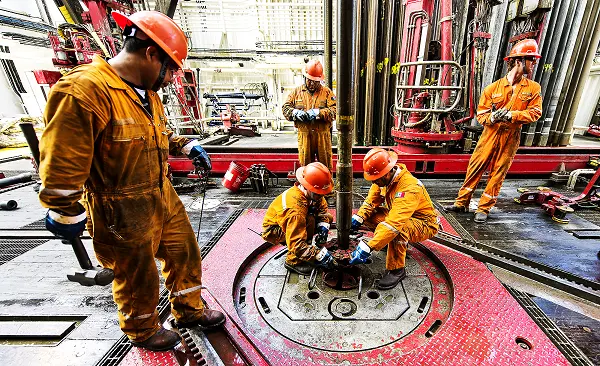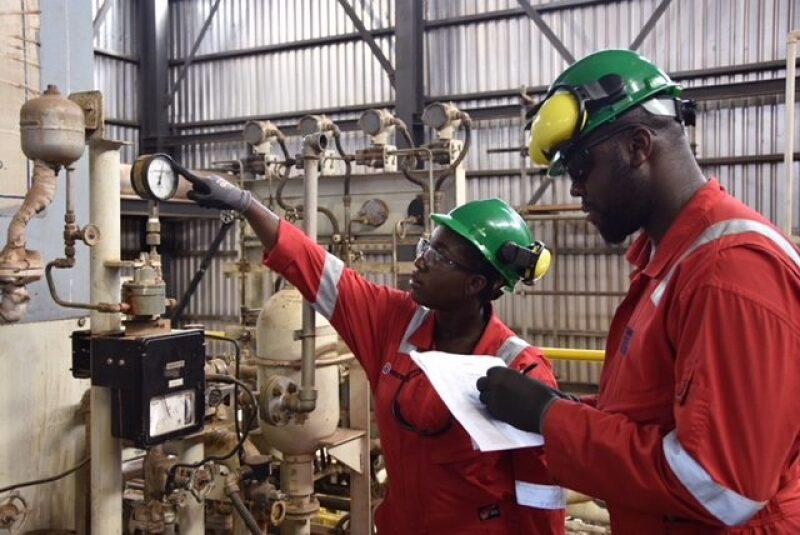Explore Our Bill Payment Services:

- Salary And Allowance
- Engineers Salary
- Ghana
Salary And Allowance Structure Of Mechanical Engineers In Ghana
Mechanical engineering has long been one of the most respected professions in Ghana. From powering the country’s construction industry to driving innovation in energy, transport, and manufacturing, mechanical engineers play a vital role in national development. With this importance comes one burning question that many graduates, students, and even experienced professionals often ask: how much do mechanical engineers in Ghana earn, and what kind of allowances and benefits come with the job?
This post provides a detailed breakdown of the salary and allowance structure of mechanical engineers in Ghana. We’ll explore how experience, education, sector, and location influence earnings, while also shedding light on the often-overlooked but equally important aspect of allowances and benefits.
Salary Landscape: How Much Do Mechanical Engineers Earn in Ghana?
When it comes to mechanical engineering salaries in Ghana, a variety of factors come into play. Experience, education level, the sector of employment, and the specific employer all contribute to how much an engineer takes home at the end of the month. Let’s break this down.
Experience-Based Salary Breakdown
As with most professions, experience is the biggest driver of salary growth in mechanical engineering. Entry-level engineers typically earn modest amounts, but the pay scale improves significantly with time and expertise. Here’s how the salary landscape often looks:
-
0–2 years of experience: around ₵31,960 annually
-
2–5 years of experience: around ₵41,660 annually
-
5–10 years of experience: about ₵55,320 annually
-
10–15 years of experience: approximately ₵70,940 annually
-
15–20 years of experience: about ₵73,760 annually
-
20+ years of experience: as high as ₵78,480 annually
In simple terms, the longer you stay in the profession and the more value you add, the higher your salary climbs. Entry-level engineers may start small, but seasoned professionals can command nearly triple the earnings after two decades of work.
Education Level Impact
Education plays a powerful role in determining salary as well. In Ghana, having just a bachelor’s degree may be enough to get you in the door, but advancing your studies can significantly boost your income.
-
Engineers with a Bachelor’s degree earn around ₵40,560 annually.
-
Those with a Master’s degree can earn up to ₵63,320 annually, representing a 60% increase over their bachelor’s degree counterparts.
This shows that pursuing postgraduate education pays off, particularly if you aim for managerial or specialized engineering positions where advanced knowledge is critical.
Sector Breakdown: Public vs. Private
Interestingly, mechanical engineers in Ghana often see different salary outcomes depending on whether they work in the public sector or the private sector. On average, public sector engineers earn more than their private-sector peers.
-
Public Sector: about ₵62,460 annually
-
Private Sector: about ₵57,620 annually
The difference might not sound huge at first glance, but over time, that extra 8% can make a meaningful difference, especially when paired with allowances and job security that the public sector often provides.
Major Employers and Company-Specific Salaries
Large international firms and regulatory bodies operating in Ghana often offer more competitive salaries and benefits than smaller companies. For example, engineers working in multinational organizations can earn between ₵53,700 and ₵74,700 annually. This is significantly above the national average, and such roles also tend to come with additional perks like housing allowances, health insurance, and professional development support.
Insights from Industry Reports
Salary reports based on employee submissions reveal that pay can vary widely depending on the company and individual negotiation skills. Monthly salaries range from ₵2,000 for entry-level roles up to ₵9,000 or more for experienced engineers. Outliers even report earning over ₵14,000 per month, particularly in senior management roles, international projects, or specialized sectors like oil and gas.
Summary: Monthly Salary Averages by Career Stage
Here’s a quick snapshot of average monthly salaries at different stages of a mechanical engineering career in Ghana:
| Career Stage | Approx. Monthly Salary (₵) |
|---|---|
| Entry-level | ~2,666 |
| Mid-career | ~4,600–6,100 |
| Senior (20+ years) | ~6,500–6,800 |
| High-end roles | ~7,000+ |
Regional Variations: Accra vs. Kumasi
Location is another critical factor in determining salary. Mechanical engineers working in larger cities like Accra and Kumasi generally earn more than those in smaller towns or rural areas. Let’s look at the two main hubs.
Accra (Capital City)
Being the capital and economic powerhouse of Ghana, Accra offers slightly higher salaries. Mechanical engineers here can expect:
-
0–2 years: ~₵34,980 annually
-
5–10 years: ~₵58,000 annually
-
20+ years: ~₵82,520 annually
Education also matters: a bachelor’s degree can yield around ₵43,480, while a master’s degree can push salaries up to ₵66,680.
Kumasi (Ashanti Region)
Kumasi, the cultural capital and a growing industrial hub, also offers competitive salaries:
-
0–2 years: ~₵35,300 annually
-
5–10 years: ~₵60,020 annually
-
20+ years: ~₵83,100 annually
Here, too, education boosts pay: a bachelor’s degree brings around ₵50,580, while a master’s degree pushes the figure up to about ₵68,360.
Bottom line: Whether in Accra or Kumasi, seasoned engineers with higher degrees can expect to earn between ₵6,900–₵7,000 per month, a very attractive income in Ghana.
Allowances in Ghana’s Engineering Compensation Landscape
Base salary is only one part of the story. Allowances and benefits often make a huge difference in overall compensation. For mechanical engineers in Ghana, allowances can add anywhere from 20% to 50% of base pay depending on the employer and sector.
Public Sector Allowances
In the public sector, allowances are structured under Ghana’s Single Spine Salary structure, and these can be quite comprehensive. Common allowances include:
-
Acting Allowance: The higher of 20% of basic salary or the difference to the acting role’s salary
-
Overtime and Additional Duty Allowances
-
Height/Depth Allowance: ₵2.80–₵5.60 per day, depending on work conditions
-
Permanent Posting Allowance: Equal to 3 months’ basic pay
-
Temporary Posting Allowance: Hotel plus 20% of monthly salary for up to 3 months
-
Tools Allowance: ₵7/day
-
Night/Out-of-Station Allowance: ₵210–₵490 per night, depending on rank
-
Kilometric Allowance: ₵3.50/km for cars, ₵1.40/km for motorcycles
These structured allowances ensure engineers are fairly compensated for extra duties and difficult working conditions.
Industry-Specific Allowances
In the private sector, allowances can vary widely by industry:
-
Construction Industry: Engineers may receive housing, travel, medical, pensions, bonuses, and car allowances. Salaries range from ₵3,500–₵7,000 for entry-level to ₵18,000–₵35,000 for senior engineers.
-
Telecom Sector: Engineers often receive fuel allowances (₵300–₵1,000), data/internet allowances (₵100–₵300), mobile phone allowances, housing, and professional development support.
-
Maritime and Shipping: At institutions like the Ghana Shippers Authority, allowances for housing, transport, duty tours, and leave can add 30–50% to base salaries.
In many private organizations, allowances serve as powerful incentives to attract and retain top talent.
Bringing It All Together: What Can Mechanical Engineers Expect?
Let’s summarize what mechanical engineers at different career levels in Ghana can realistically expect in terms of salaries and allowances:
Entry-Level Engineers (0–2 years)
-
Salary: ₵2,600–₵3,000 per month
-
Allowances: Transport, posting, and meal allowances could add 10–30% to the total package
Mid-Career Engineers (5–10 years)
-
Salary: ₵4,500–₵6,000 per month
-
Allowances: Housing, travel reimbursements, and professional development support often included
Senior Engineers / Project Managers (15+ years)
-
Salary: ₵6,500 or more per month
-
Allowances: Car allowances, housing, performance bonuses, and professional training funds can significantly raise total compensation
Insights & Recommendations for Mechanical Engineers in Ghana
-
Experience pays off: A mid-career engineer can double the salary of an entry-level counterpart, while senior professionals can triple it.
-
Education is a game-changer: A master’s degree can boost pay by 50–60%, making it a smart investment for ambitious engineers.
-
Allowances matter: They can add 30–50% to base salaries, so jobseekers should consider total compensation, not just the salary figure.
-
Know your sector: Public roles may offer stability and structured allowances, while private roles in telecom, construction, or oil and gas can bring higher perks.
-
Location is key: Engineers in Accra and Kumasi generally enjoy higher salaries and better opportunities than those in smaller towns.
Final Thoughts
Mechanical engineering in Ghana is not only a prestigious profession but also a financially rewarding one. Entry-level engineers may start with ₵2,600–₵3,000 per month, but with experience, education, and strategic career moves, total compensation can climb above ₵7,000 per month. Allowances further sweeten the deal, especially in industries like construction, telecom, and public infrastructure.
For young graduates and aspiring engineers, the message is clear: invest in education, choose your sector wisely, and pay attention to allowances—not just the base pay. With dedication and the right choices, mechanical engineering in Ghana offers both financial stability and professional fulfillment.









